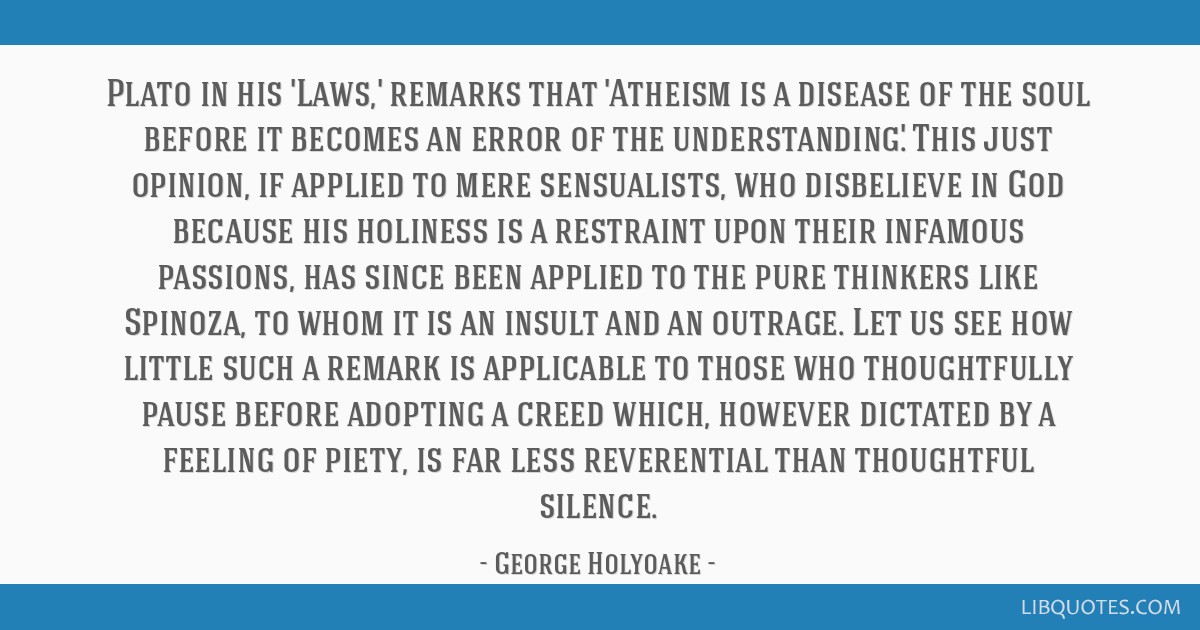Plato in his 'Laws,' remarks that 'Atheism is a disease of the soul before it becomes an error of the understanding.' This just opinion, if applied to mere sensualists, who disbelieve in God because his holiness is a restraint upon their infamous passions, has since been applied to the pure thinkers like Spinoza, to whom it is an insult and an outrage. Let us see how little such a remark is applicable to those who thoughtfully pause before adopting a creed which, however dictated by a feeling of piety, is far less reverential than thoughtful silence.
p. 13 - The Limits of Atheism: Or, Why Should Sceptics be Outlaws? 1874























